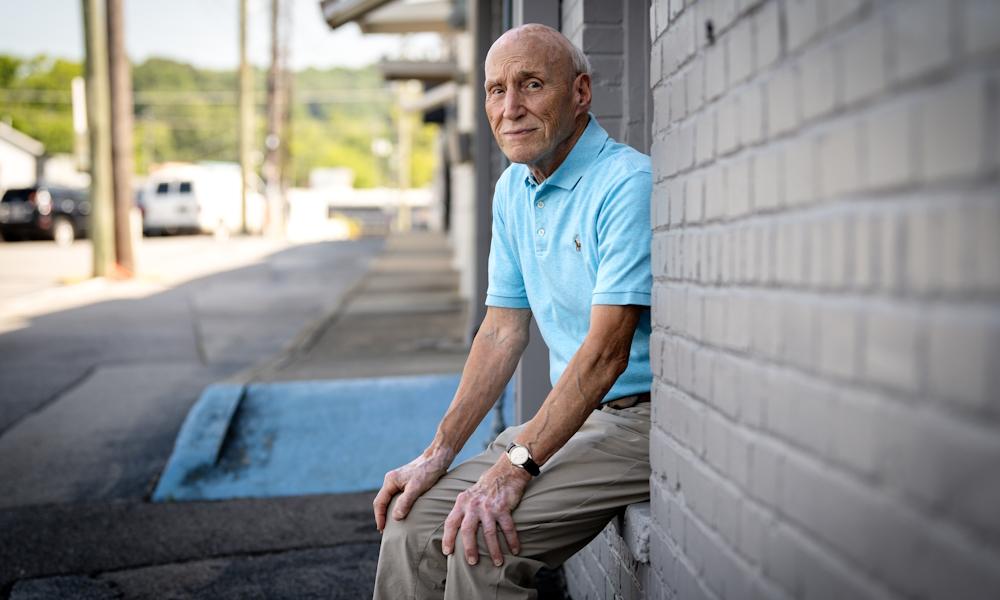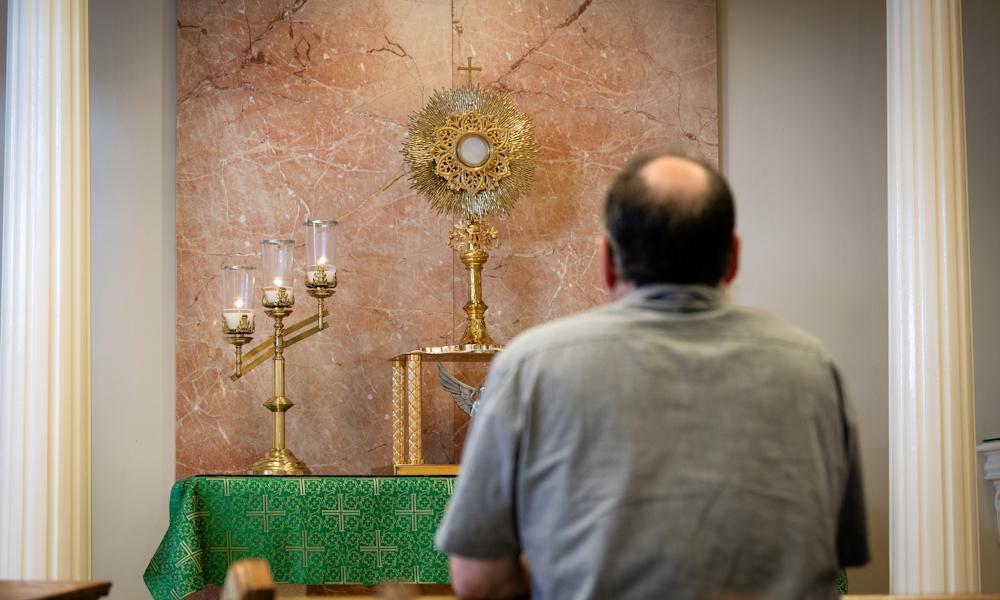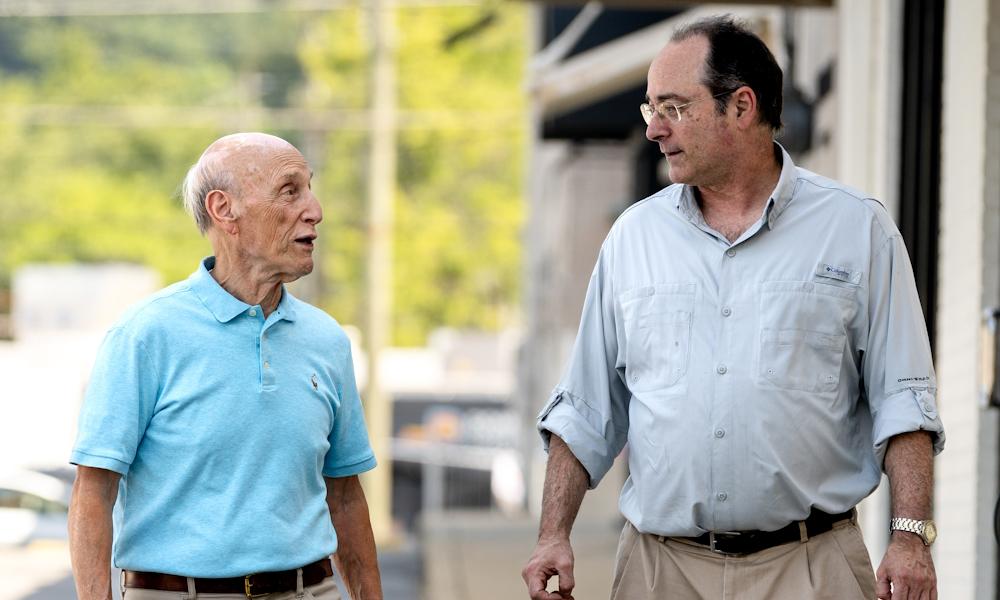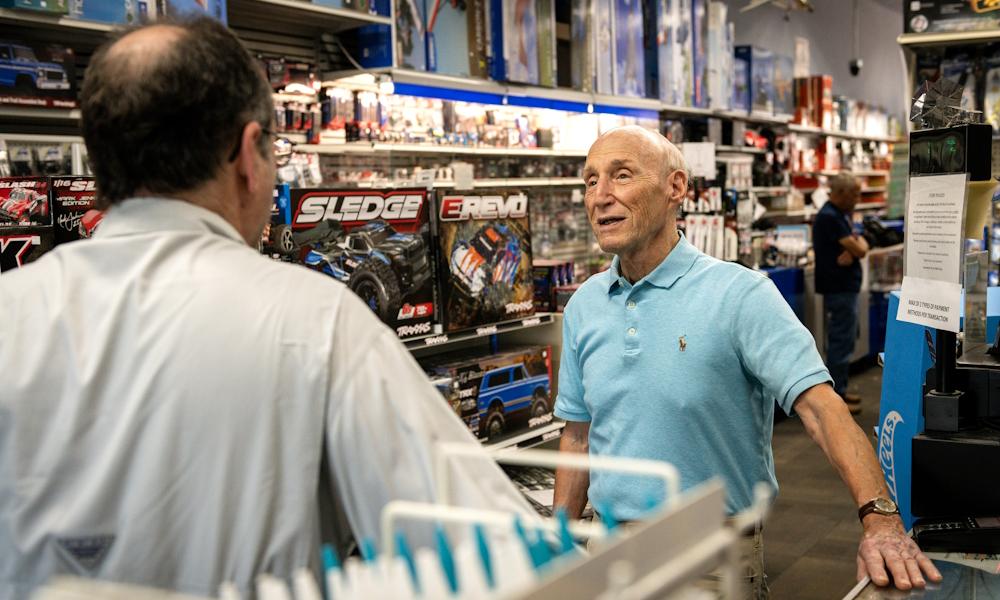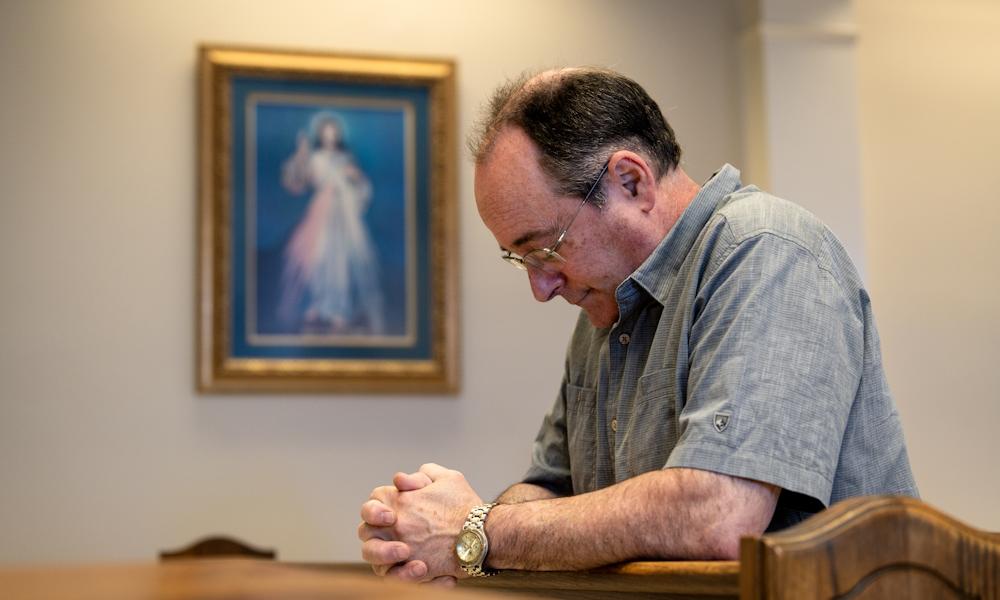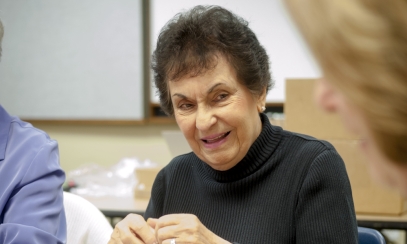
The power of encounter
He was setting me up from the word go, and he knew it, remembers Bo Lovell, director of Our Lady of Sorrows Catholic Church’s Chapel of Our Savior in Homewood. The person setting up Lovell was his then boss and a Our Lady of Sorrows parishioner, Walter Busenlehner. The ruse, however, was, by no means, malicious.
He was setting me up from the word go, and he knew it, remembers Bo Lovell, director of Our Lady of Sorrows Catholic Church’s Chapel of Our Savior in Homewood. The person setting up Lovell was his then boss and a Our Lady of Sorrows parishioner, Walter Busenlehner. The ruse, however, was, by no means, malicious.
The two met at Homewood Toy and Hobby Shop when Lovell was an employee. Busenlehner, the former owner, would work frequently at the shop to help his daughter, Tricia, the current owner. During the many days of working alongside each other, the Catholic Busenlehner and the Methodist Lovell would engage in friendly “philosophical, religious, and spiritual debates.”
Lovell was very involved with his church. From his time as a child participating in his youth group to teaching the program as an adult, Lovell participated in numerous church programs, including teaching Sunday school. To say that Lovell was a practicing Methodist would be an understatement.
Strangely though, Lovell admits to believing, for as long as he can remember, that the Catholic Church was the Church founded by Christ. “No question about it,” he affirms. “I even tried to go to confession one time as a student at Auburn, but I clung to the rhetoric about the human failings of the Church.”
Lovell’s concession led him to counter all of Busenlehner’s arguments with the notion that Methodists aren’t too “far from being Catholics.” Of course, Busenlehner knew different: to fall into the grips of relativism waters down one’s beliefs. As a long-time devotee to Eucharistic adoration, Busenlehner firmly believed the Catholic doctrine of the Real Presence and wanted to share it with his friend and co-worker.
Busenlehner invited Lovell to R.C.I.A., explaining that it would be a way for him to better understand his positions which would lead to “better banter back and forth.”
Touting the free meal, Busenlehner accompanied Lovell to the first R.C.I.A. class, making sure he didn’t feel out of place. He also made sure to introduce Lovell to Msgr. Martin Muller, then pastor of Our Lady of Sorrows, who didn’t let a class end without mentioning, in some fashion, the Eucharist being the Body, Blood, Soul, and Divinity of Christ. “After hearing Father Muller talk about the Real Presence and why it’s the Real Presence,” recalls Lovell, “I wanted to be Catholic. … That R.C.I.A. class really touched my heart, and I wanted to have Jesus along with me.”
For Lovell, the Eucharist was the “missing puzzle piece.” Even with all his involvement with the Methodist Church, he felt as if there had to be something more, and he found it in the Blessed Sacrament. In 2011, Lovell, with Busenlehner as his sponsor, was received into full communion with the Catholic Church during the Easter Vigil.
Two years after converting to Catholicism, Lovell kept noticing a request in the church’s bulletin for committed adorers. He had befriended Mary Claire Brouillette, co-founder of the church’s perpetual adoration effort, so he picked up the phone to inquire which hour was needed most.
For several years, he kept his late-night Saturday hour and “had some wonderful experiences.” One night, however, changed his perspective forever.
As he sat down to begin praying the Divine Mercy Chaplet, a “very strange feeling” came over him. He felt reduced to the intelligence and understanding of a child. A strong “thought” crossed his mind, almost to the point of being audible: “You will never know how much I love you.” He countered, “There’s no way I could ever understand how much You love us. You are right, but I am here right now because of You. What would You have me do?”
The next thought took him by surprise: “Sit here. Stay with Me for your appointed time and enjoy My peace. It is My gift to you.”
Once his mind was clear, he picked up a tattered book sitting at the end of the pew, Loving Jesus with the Heart of Mary. The book, written by Mother St. Teresa, featured a foreword by a priest, extolling the virtues of perpetual adoration.
Lovell was struck by the priest’s perspective on adoration in relation to the Lord’s Passion. The priest asked readers to think about Christ in the Garden of Gethsemane and the angel that came to strengthen Him in His time of anguish. The priest then suggested the readers contemplate the angel showing Jesus a vision of them in adoration.
As the unnerved Lovell continued to read, the words echoed those in his thoughts, almost like an affirmation. “Just as one cannot go out into the sun and not expect to be affected by its rays, you cannot sit in the presence of God without being changed in some way,” he read. Convinced no one would believe him, he decided to write about his experience and discern it. He then took it to his confessor, and six months later, he felt called to share his experience with others.
To Lovell’s relief, the first person he told was an adorer who needed to hear his message. “I have been coming here almost every other night for three years,” proclaimed the adorer, “and I have never felt anything that let me know He appreciated it. You telling me this is my message from Him.”
Since that time, Lovell has been sharing his experience with others, for it is his way of bringing others into encounter with Jesus. The power of encounter is not trivial, neither is the power of prayer. Without Busenlehner’s courage to share his faith, Lovell would never have joined the Church. And after a little over a decade as a Catholic, Lovell’s love of the faith has only deepened. “The Catholic faith is a jewel,” he observes. “People just don’t treat it that way.”
The mentality that you should only give something to get something in return is a mistake too many in the world make.
Trying to explain God’s unconditional love for all His children, Lovell gives the example of a child seriously injured in an accident. As parents, the question of whether or not to give of oneself is never a hard one to answer. Even if it meant great sacrifice such as offering an organ for transplant. However, as the child grows and prospers, he or she becomes rebellious to the point of getting nasty and distancing themselves. The love a parent has for a child would not fade, but a hurt would be present. No matter how much hurt the child causes, the parent will still continue to love their child. For Lovell, that is the only way he believes we as humans can even begin to understand God’s love for us.
With that analogy in focus, the words “you will never know how much I love you” carry an even greater weight for Lovell. “Jesus is here in this chapel,” he contends, “fully present and waiting for you.”

